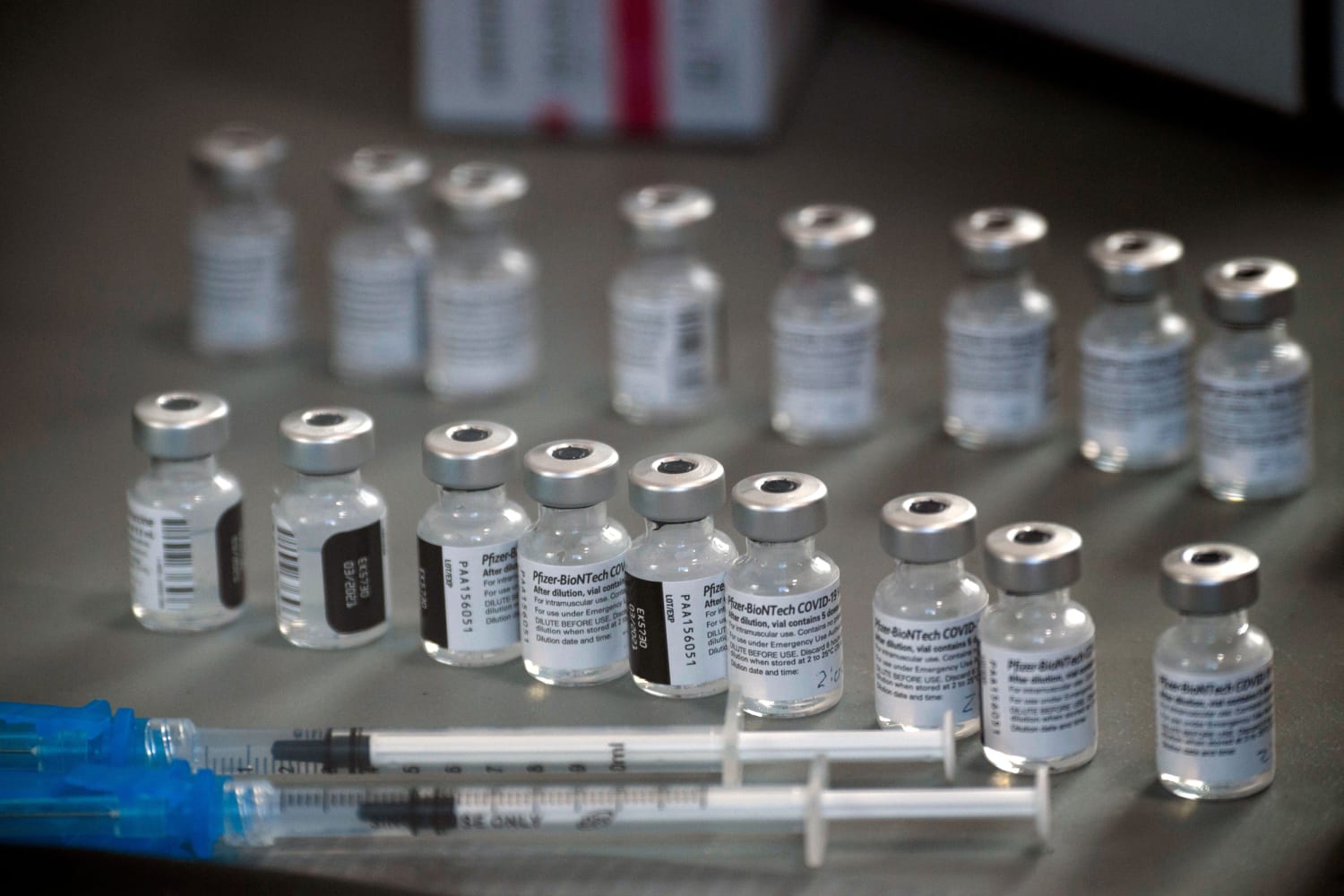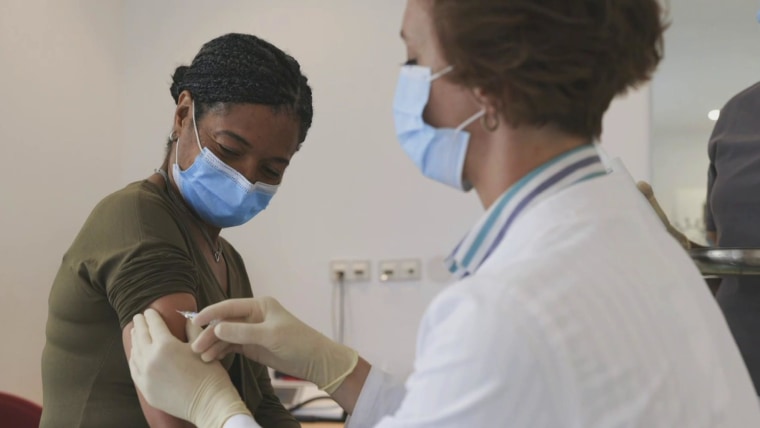The Covid-19 vaccine developed by Pfizer and BioNTech produces a robust immune response after just one dose, according to a new Israeli study of vaccinated health care workers at the country’s largest hospital.
The research, published Thursday in the medical journal The Lancet, followed 7,214 staff members at Israel’s Sheba Medical Center, a government-owned facility, who received their first dose of the Pfizer-BioNTech vaccination between Dec. 19 and Jan. 24. Scientists from the medical center found that the vaccine was 85 percent effective at preventing symptomatic Covid-19 within 15 to 28 days after the shot was administered.
Experts cautioned that more research is needed before broad conclusions can be drawn, but the results do provide some evidence that robust immunity is generated after one dose and that the second dose could be delayed beyond the three weeks prescribed by Pfizer in order to ease distribution and supply constraints.
The timing of the second dose has been the subject of much recent debate, with some countries such as the United Kingdom opting to delay it as a way to speed up the country’s rate of immunization. In the United States, where the vaccine rollout has been bumpy and winter storms over the past week have hampered some states’ ability to administer shots, similar questions have emerged.
Dr. Jonathan Temte, a vaccine expert at the University of Wisconsin School of Medicine and Public Health who was not involved with the Israeli study, said any sweeping changes to immunization recommendations would require more data, but that the results of the new study are encouraging.
“It does provide reassurance that delays for whatever reason, be it the weather or problems in the supply chain — it provides some comfort knowing that those individuals who have received the one dose do achieve a good level of protection,” he said.
Official guidance from the Food and Drug Administration and Pfizer-BioNTech state that the two doses should be administered 21 days apart based on the results of clinical trials. For the Moderna vaccine, the only other vaccine currently authorized for use in the U.S., the prescribed interval between the two shots is 28 days.
But vaccine supplies are limited and different strains of the virus are circulating around the country, putting pressure on states to quickly vaccinate as many people as possible. Some have questioned whether there is flexibility in the timing of the second dose.
Last month, the Centers for Disease Control and Prevention updated its guidance to say that the second shot should be administered within the prescribed time frames where possible, but that the second dose of the Moderna and the Pfizer-BioNTech vaccines could be delayed up to six weeks, if necessary.
Pfizer has said it has not yet studied changes to the timing between doses, and the drugmaker has maintained that any deviations to the dosing schedule is up to health authorities.
In the new Israeli study, researchers reported 170 Covid-19 infections among health care workers at the Sheba Medical Center between Dec. 19 and Jan. 24. Of those, 78 people tested positive after receiving the first dose and three individuals tested positive after receiving the second dose. Since the vaccines are not 100 percent effective, it is expected that a small number of people could contract the virus even after being fully vaccinated.
The study also found a 75 percent reduction in both symptomatic and asymptomatic infections after just the first shot. The scientists said these reductions suggest that one dose provides a robust enough immune response to justify delaying the second shot.
“Early reductions of Covid-19 rates provide support of delaying the second dose in countries facing vaccine shortages and scarce resources, so as to allow higher population coverage with a single dose,” the researchers wrote in the study.
They acknowledged, though, that testing limitations may have resulted in undercounted asymptomatic cases and that follow-up research is needed to assess the long-term effectiveness of a single dose.
The findings provide some of the first real-world data on the effectiveness of a single vaccine dose. Israel’s vaccination program has far outpaced any other country, and more than 30 percent of the country’s 9 million residents have already received both doses.
Temte said that while early results from Israel’s vaccine program are positive, there are still too many unknowns about a single dose’s efficacy beyond three to six weeks.
“Until such time that there are good clinical trials that show that a single dose provides an equivalent level of protection, I don’t know that we should abandon our approach or create new policies,” he said.
It’s also not clear how one dose will perform against different coronavirus strains that are becoming more widespread, including separate strains that were first reported in the U.K., South Africa and Brazil.
“We’re running into uncharted territory,” said Deepta Bhattacharya, an associate professor of immunobiology at the University of Arizona, who was not involved with the study. “The uncertain issue is how long that protection is going to last against the current variants, as well as some of the ones that might get selected for if you wait too long.”
Bhattacharya said delaying the second dose up to six weeks, in line with the CDC’s guidance, seems reasonable. But beyond that, it may be too soon to tell, which means health officials may be faced with tricky decisions.
“We’re stretching the limits of what we’re able to see,” he said. “We’re sort of at a point now where we have to make decisions based on imperfect evidence.”
Source: | This article originally belongs to Nbcnews.com












